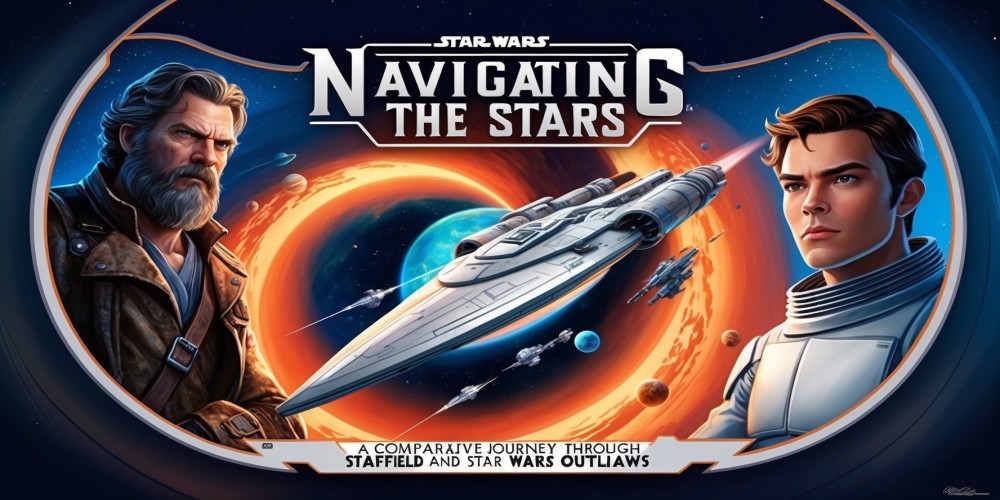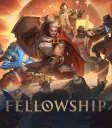Navigating the Stars: A Comparative Journey Through Starfield and Star Wars Outlaws
Nov-07-2024

In the constantly transforming world of gaming, expectations frequently soar as players look forward to the next big title, hoping it will meet the high expectations established by its forerunners and rivals. For some time now, the gaming community has placed tremendous anticipation upon Starfield, an ambitious project from Bethesda Game Studios.
However, as players delved into the universe crafted by Bethesda, many found their expectations were perhaps a touch too elevated. In an unexpected turn of events, Ubisoft and Massive Entertainment released Star Wars Outlaws, a title that has rapidly gained attention and accolades, even as Starfield struggled to find its footing in the market. Here we explore the juxtaposition of these two titles, focusing on the various aspects that define player experience, immersion, and overall satisfaction.
High Hopes and Grounded Realities
Starfield was hailed as the cornerstone of Bethesda's portfolio, promising expansive exploration across the cosmos. The years of anticipation and development led to a vibrant community eager for a stellar experience. Yet, the reality of gameplay mechanics and graphics left some yearning for enhancements to reach their expectations.
A Wealth of Lore
The Star Wars series is famous for its rich narrative and compelling characters, providing Massive Entertainment with a treasure trove of source material. This gave Outlaws a unique advantage, allowing players to engage with the expansive Star Wars universe without being tethered to existing storylines.
Visual Disparities
While Bethesda's years of hard work yielded a visually stunning universe, fans noted that there were still areas requiring fine-tuning for a more immersive experience. Starfield's visuals, although impressive, did not match the level of environmental detail and engagement presented in Outlaws.
Fluid Gameplay Mechanics
One of the striking features in Star Wars Outlaws is the fluidity with which players can navigate between planets. The game incorporates innovative design principles that enhance player mobility and reduce the frustration of loading screens, allowing for a continuous gaming experience.
The Role of Community Modding
In the face of critiques regarding interplanetary travel, the modding community surrounding Starfield has actively sought to address these limitations. With the Creation Kit, players have introduced their own features and tools to enhance navigation, showcasing their dedication to elevating the game.
Exploring the Void
Imagine navigating the boundless cosmos in a space suit tethered to a shuttle. The concept of airlock exploration has been suggested by fans, and the current version of Starfield lacks this intriguing mechanic—a feature that would undoubtedly bolster immersion and player engagement.
A Mixed Reception
Star Wars Outlaws has not been without its flaws. Players have faced bugs and performance hiccups, leading to discussions about its overall polished presentation. However, the developers have sought to weave captivating narratives and engaging gameplay mechanisms amidst these issues.
Easter Eggs and Cultural Connections
One of the charms of Outlaws lies in its Easter eggs that resonate with dedicated fans. The inclusion of well-known weapons and items creates a bridge connecting players back to the larger universe, enriching their gaming experience.
A Vibrant Environment
The rich environments in Outlaws invite players to explore every nook and cranny, creating an immersive journey. Ubisoft’s focus on ensuring there are no lulls in gameplay significantly enhances engagement, allowing players to get lost in the universe.
Side Quests and Exploration
The beauty of a vast open-world game is the opportunity provided to meander off the beaten path. Star Wars Outlaws successfully incorporates varied side missions and engagements that enable players to experience the richness of the lore while having fun diversions away from the primary narrative.
The Future of Gaming
As Star Wars Outlaws continues to garner both criticism and praise, the industry watches closely, hoping to see how the experiences of both games will influence future titles. Developers are encouraged to absorb lessons learned from the successes and shortcomings of their peers.
The Need for Evolution
There’s hope that the developers at Bethesda Game Studios will take a page from the playbook of Massive Entertainment. Starfield's potential could greatly benefit from modifications inspired by the distinct gameplay mechanics and captivating narratives found in Outlaws.
The Anticipation for Expansions
As talks of expansions circulate within the Starfield community, players are invited to speculate what additional features might emerge. Inspiration from the successes of Outlaws could guide Bethesda in crafting meaningful updates and giving players the experience they desired from the start.
A Call for Interaction
As appreciation for Star Wars Outlaws grows, community discussions thrive as players evaluate their experiences. Gamers globally are invited to contribute their thoughts on both titles, engaging in dialogues that can shape the future of gaming.
A New Era for Open-World Games
Both Starfield and Star Wars Outlaws serve as vital case studies in the evolving landscape of open-world gaming. They reflect how player expectations are continually rising, while developers endeavor to meet and exceed those anticipations. As new games enter the scene, the audience eagerly awaits fresh experiences that provide both depth and innovation.
In conclusion, while Starfield sought to deliver an expansive universe for players to explore, it is evident that it may have faltered in certain areas that players may have wanted to be more robust. On the other hand, Star Wars Outlaws, with its intricate storytelling and engaging gameplay, has emerged as an enticing alternative.
The ongoing discourse surrounding these titles emphasizes the importance of player feedback, guiding developers toward creating the immersive experiences they aim for in the future. What will the next game bring to the table? Only the passage of time will uncover the truth, yet for now, players have much to discuss and even more to look forward to.







